The ‘Raza Mir’ Factor
Timeless star Asif Raza Mir and son Ahad Raza Mir spill the beans in their most personal family interview yet
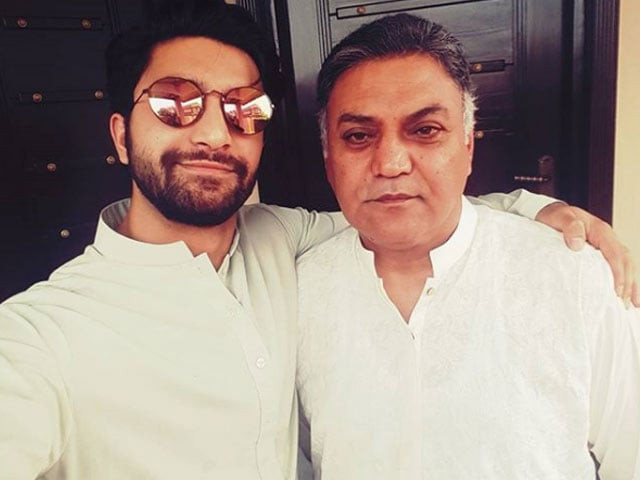
PHOTO: PUBLICITY
Whilst he’s ventured into production with his own banner, his offspring and all-the-rage today, Ahad Raza Mir, follows in his father’s footsteps bringing forth oodles of charm and incredible acting prowess.
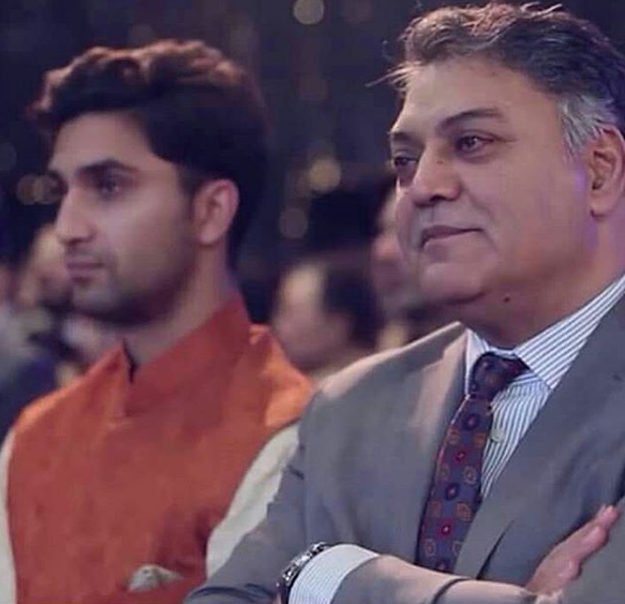 PHOTO: PUBLICITY
PHOTO: PUBLICITYJust within the span of a little over a year, he’s become one of the most successful actors of the nation. I remember first interviewing him when he had just stepped foot in the industry and returned to Pakistan from Canada, and as I sit down with him now, after numerous achievements, he remains the same person – passionate, zealous and humble.
The two haven’t had a chance to work together, but are in talks with production houses, whilst Asif feels that his son has had it in him since he was in the 8th Grade. Keeping it candid and real, The Express Tribune caught up with the dynamic father-son duo for more revelations on winning big (at award shows and otherwise), collaborating with one another and broadly, how the industry functions. Excerpts from our conversation follow:
ET: First and foremost, are you critical of each other’s work?
Asif Raza Mir: We are! I feel Ahad is at a stage where he wants to have that feedback and a lot of times, he has seen my work and as individuals, we do talk about our work. I don’t think we could call it being critical, but we do suggest each other how something could have been done better; but that’s an ongoing process that will continue as we go forward.
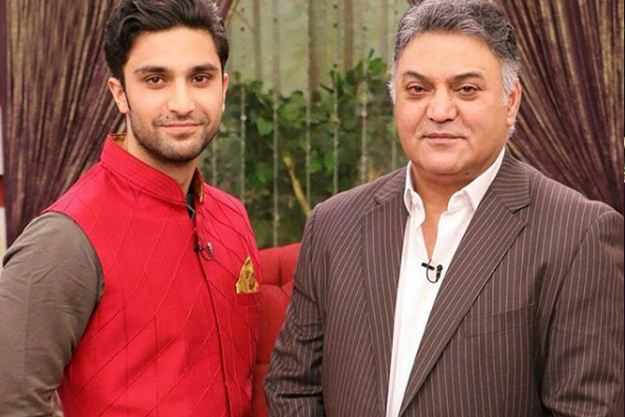 PHOTO: PUBLICITY
PHOTO: PUBLICITYAhad Raza Mir: I can’t really be critical of his work; I learn from him and he’s a school. But I’m always observing and somewhere, stealing as much as I can (laughs). But he’s definitely someone who knows me very well and how good I can do, so he’s particularly good at pinpointing what is it exactly that I do right or I don’t. He’s very helpful in that sense. What stays with me is that he taught me to take my time and be patient.
ET: Last year, when Ahad had just started off his career in Pakistan, the two of you came under fire for nepotistic accusations and he’s truly risen above them; comments?
Asif: I think it’s very natural that people would have made that comment; he comes from a family that is already established in the industry and it would probably be easy for him. I’d say, maybe, to some extent it was easier because there was a reference, but this business is where only the fittest and the absolute best can survive. At the end of the day, only the audience can decide whether he’s a good actor or not, regardless of his family name, and he’s been able to overcome this, proving his mettle on his own.
Ahad: I feel like there’s a burden that’s been lifted off of my shoulders, but I hope I can maintain this. There were actually three things; I wanted to prove myself on my own, secondly, I wanted to take my family name forward and lastly, I wanted to show people that I’m serious about this. It’s not that I’ve come in it just because of my family lineage, but because I love my work. People kept telling me I was a star-kid, but I spent most of my time not knowing that. It was oblivious to me. I wanted people to take me, as an actor, very seriously. I’m not a social media celebrity, I’m not here to become famous; I’m here to give Pakistan some good cinema and TV.
ET: Ahad, you just won the ‘Best Actor’ award at the Lux Style Awards, the very same that your father held exactly a decade ago for Mere Dard Kou Jo Zaban Milay. How does that feel?
Asif: I did (laughs)? I think I’m losing my memory, but it does give me a lot of pride, something I can’t put into words. The best thing about Ahad’s award is that Yaqeen Ka Safar was his first play on the Pakistani screens and that in itself would go down in history that there is this one individual to win for his very serial. LSAs are basically an appreciation by the public, translated into these awards. And I think they’ve done a great job running this show consistently and recognising actors all these years, even when the film industry was at its all-time low.
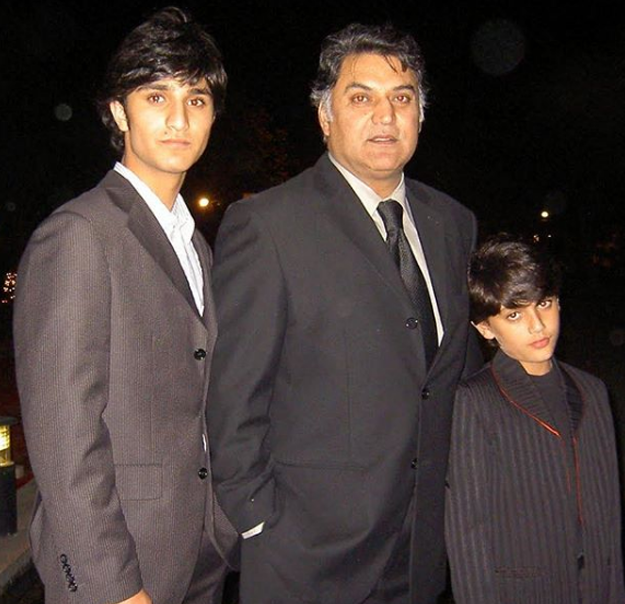 PHOTO: PUBLICITY
PHOTO: PUBLICITYAhad: I finally get to come home with my own (laughs)! It’s technically Pakistan’s biggest award and the day I came back home from Lahore and put mine at the same place as his. Most of all, I feel it’s keeping the family name relevant, keeping it up there. In that moment, when I was awarded with the trophy, all I could think of was my grandfather. People still remember Raza Mir and it was truly a big deal for me.
ET: Nauman Ijaz and Sarmad Khoosat pointed out that young actors like you Ahad should have been awarded with a separate category instead of ‘Best Actor’ competing against seasoned actors. What’s your take on that and the credibility of the award shows?
Asif: Controversies attached to award shows aren’t anything new, they happen worldwide. Some people don’t have very nice things to say, whereas others have great things to say. Like I already said, I personally think of it very positively. As far as categories go, there’s always one ‘Best Actor’. There can’t be a division between fresh talent and not-so fresh talent. What would they call the category for veterans? Should we call it the ‘Oldies’ Award’? I think Nauman is a great actor and I’m not commenting on what he said, but a category shouldn’t reflect on anything but what people have liked and appreciated.
Ahad: Frankly, I don’t agree with them, I was honored to share the same list as Nauman Sahab, but I don’t feel there should be separation between newcomers and seniors. What’s the point of the awards then? Do we ever hear people in Hollywood or Bollywood arguing about that? It’s not about division; it’s about celebrating good work. There have been instances where Robert De Niro has lost to actors much, much younger than him and there was no second thought. Not to say I’ve done something spectacular, but I shouldn’t be undermined because I’m young either; that just isn’t fair.
As far as the credibility goes, there were some things that didn’t make sense to me. Yaqeen Ka Safar, the biggest play of the year, yes, I’m tooting my own horn, but it was serial everyone spoke about. Why it was not nominated for ‘Best Drama’? I’m being selfish here, but a play like Muqabil, which was nominated in all major TV categories, but my father, who was the driving force of the serial wasn’t recognised. Nobody can deny that because I watched the serial myself and that’s what the response has been. I just think we’re all in this together, we shouldn’t treat this as competition, but something that helps us move forward.
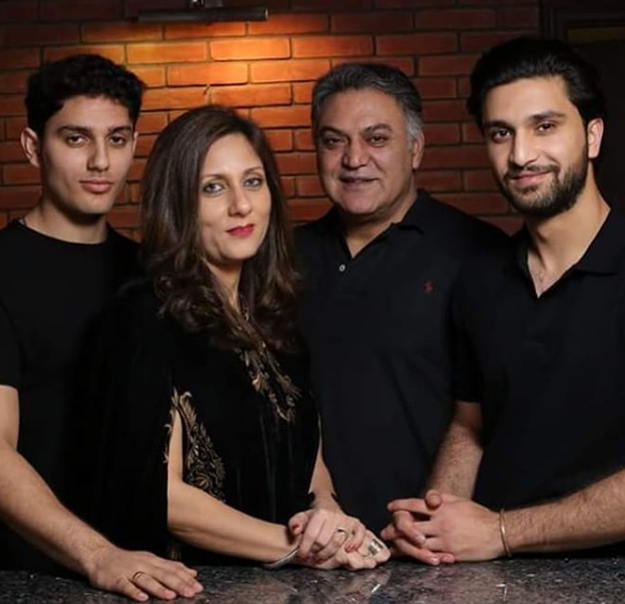 PHOTO: PUBLICITY
PHOTO: PUBLICITYET: Asif, Ahad has also joined your production house and the two of you are developing on scripts for films. What’s it like working together?
Asif: Well our paths fall over (laughs). He has his own views, I respect that and to some extent, he respects my views (laughs). But I think it’s a good combination of youth and experience, let’s see whether we can deliver. There’s no concrete timeline set on it; we’re taking our time. It’s come to a bit of a standstill because of both our commitments. I’m involved in a new venture that is developing a post-production facility for film, TV and restoration like color grading, sound and all of these things in collaboration with a company based in Hollywood. So that’s taking a lot of my time, once I’m done with that, we’ll start focusing on the film and we’ll hopefully be on-set sometime next year.
Ahad: Working with him is fun, but Baba is full of ideas to make things bigger, better, which is why he can be indecisive sometimes (laughs). But out of the two projects I conceived and wrote, we’re focusing on one of them right now, which is a love-story very grand in its storytelling, but ever since Yaqeen Ka Safar happened, I’ve kind of been very busy, so Baba is taking that forward when he gets the time to. It’s a sensitive time for films right now, so we’re deciding how to scope it out, strategically.
ET: Ahad, writing isn’t the only job you’ve done behind the camera. You started off acting and directing theatre in Canada. Is theatre something you’d like to pursue in Pakistan also?
Ahad: I come from theatre back in Canada, so I’ve directed a lot of plays there and that’s definitely something I want to pursue here, but my biggest fear right now is the lack of time I’m getting. I’m running from one place to another and because I really got into the serial I’m doing (Aangan), we’re shooting it in bits and pieces since there’re a lot of variations in my character. So maybe when it slows down a little, which I hope it doesn’t (laughs), but I’d love to direct or be part of theatre here. In fact, I’m planning to go back to Canada next year for some Shakespeare; I need that play-break.
ET: You’ll be featuring in Parwaaz Hay Junoon this year. Do you have any recollection of your father’s films from back in the ‘80s?
Ahad: Yes! I used to watch Baba’s old films. One of my all-time favourites remains Miss Hong Kong. He played a very fun, charming, but witty character. But believe me, when I was in Canada in my younger years, I had no idea who ‘Asif Raza Mir’ was; I just knew my dad did some films. It’s when I briefly moved back in about 2006 before I went on for university; I got to know who he was. I used to be on the streets and people would be yelling his name. It was a shock (laughs). But having watched his roles, I’m seeing how things are changing with time, not just within my family, but in the industry at large, how much film has changed and its future.
ET: Asif, you just starred in the recently released Maan Jao Na and were apparently a part of Azaan Sami Khan’s much-delayed directorial. What’s your take on the kind of films that are being made?
Asif: I haven’t seen Maan Jao Na myself, I wasn’t in Pakistan, but I’ve heard it’s entertaining, which is exactly what it set out to achieve. As far as the industry goes, it is evolving and it will continue to evolve. Yes, we are going through issues that should’ve been dealt with and sorted by now, but you know, we’re a small industry. We’re trying and there’re some success and some failure stories, but I think we’re becoming knowledgeable.
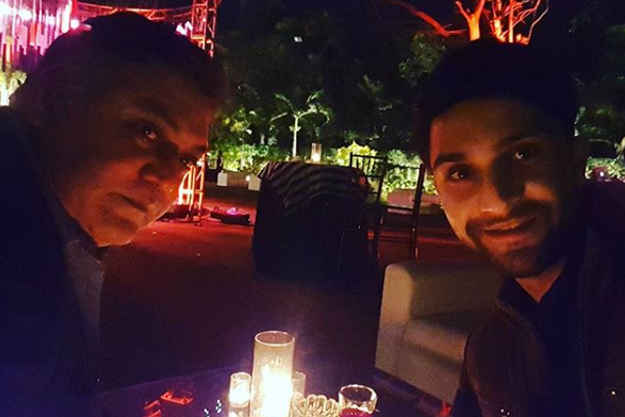 PHOTO: PUBLICITY
PHOTO: PUBLICITYAs time passes by, there are more young producers and directors coming in. We will have to have some patience and make sure that investments are done within the country; we can’t start importing or letting this money go out either. And it actually is gradually changing, we have film-makers like Humayun Saeed and Nabeel-Fizza or Yasir Nawaz, and the numbers are only increasing.
ET: Asif, you were missing from the acting scene before you made a comeback of sorts with a number of television serials. What kept you busy?
Asif: Fortunately or unfortunately, I am on every channel right now (laughs). But there was a point when I wasn’t on any of them. After Muqabil, there were some great scripts that came my way and I had disengaged myself from Geo then, so I had some time also. I think another key element is that in my age group, there are very limited options left, so I was fortunate last year with the kind of roles I was offered. I will continue to do plays for the time being, but I think I’ll have to take a hiatus when I begin production for my film. That will need my complete focus and concentration.
ET: Lastly, if there was one thing you could change about the industry, what would it be and why?
Asif: I think not only talent on-screen, but also the people who work behind the camera need to be educated – ethically as well as technically, and that would truly change the landscape entirely. The audiences look at the stars on the screen, but a huge process takes place to actually make that possible and that is where the training and investments are needed. If I do get a chance, I would definitely change the production process and provide the youngsters with the knowledge they need.
Ahad: There are a lot of things I see that are wrong. What comes to mind is that we’re not putting talent above all else and we’re wasting actors. We are casting people based on their social media following and we’re confused; our actors are confused on whether the number of followers you have determines your success, but it doesn’t, it’s very artificial. I think there’s a big division between people who take acting seriously and people who take social media seriously.
Have something to add to the story? Share it in the comment below.





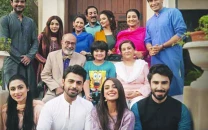













COMMENTS
Comments are moderated and generally will be posted if they are on-topic and not abusive.
For more information, please see our Comments FAQ